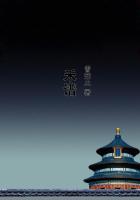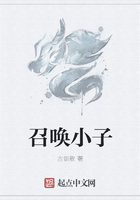Of the serious in writing, and for what purpose it is introduced Peradventure there may be no parts in this prodigious work which will give the reader less pleasure in the perusing, than those which have given the author the greatest pains in composing. Among these probably may be reckoned those initial essays which we have prefixed to the historical matter contained in every book; and which we have determined to be essentially necessary to this kind of writing, of which we have set ourselves at the head.
For this our determination we do not hold ourselves strictly bound to assign any reason; it, being abundantly sufficient that we have laid it down as a rule necessary to be observed in all prosai-comi-epic writing. Who ever demanded the reasons of that nice unity of time or place which is now established to be so essential to dramatic poetry? What critic hath been ever asked, why a play may not contain two days as well as one? Or why the audience (provided they travel, like electors, without any expense) may not be wafted fifty miles as well as five? Hath any commentator well accounted for the limitation which an antient critic hath set to the drama, which he will have contain neither more nor less than five acts? Or hath any one living attempted to explain what the modern judges of our theatres mean by that word low; by which they have happily succeeded in banishing all humour from the stage, and have made the theatre as dull as a drawing-room! Upon all these occasions the world seems to have embraced a maxim of our law, viz., cuicunque in arte sua perito credendum est*: for it seems perhaps difficult to conceive that any one should have had enough of impudence to lay down dogmatical rules in any art or science without the least foundation. In such cases, therefore, we are apt to conclude there are sound and good reasons at the bottom, though we are unfortunately not able to see so far.
*Every man is to be trusted in his own art.
Now, in reality, the world have paid too great a compliment to critics, and have imagined them men of much greater profundity than they really are. From this complacence, the critics have been emboldened to assume a dictatorial power, and have so far succeeded, that they are now become the masters, and have the assurance to give laws to those authors from whose predecessors they originally received them.
The critic, rightly considered, is no more than the clerk, whose office it is to transcribe the rules and laws laid down by those great judges whose vast strength of genius hath placed them in the light of legislators, in the several sciences over which they presided. This office was all which the critics of old aspired to; nor did they ever dare to advance a sentence, without supporting it by the authority of the judge from whence it was borrowed.
But in process of time, and in ages of ignorance, the clerk began to invade the power and assume the dignity of his master. The laws of writing were no longer founded on the practice of the author, but on the dictates of the critic. The clerk became the legislator, and those very peremptorily gave laws whose business it was, at first, only to transcribe them.
Hence arose an obvious, and perhaps an unavoidable error; for these critics being men of shallow capacities, very easily mistook mere form for substance. They acted as a judge would, who should adhere to the lifeless letter of law, and reject the spirit. Little circumstances, which were perhaps accidental in a great author, were by these critics considered to constitute his chief merit, and transmitted as essentials to be observed by his successors. To these encroachments, time and ignorance, the two great supporters of imposture, gave authority; and thus many rules for good writing have been established, which have not the least foundation in truth or nature; and which commonly serve for no other purpose than to curb and restrain genius, in the same manner as it would have restrained the dancing-master, had the many excellent treatises on that art laid it down as an essential rule that every man must dance in chains.















